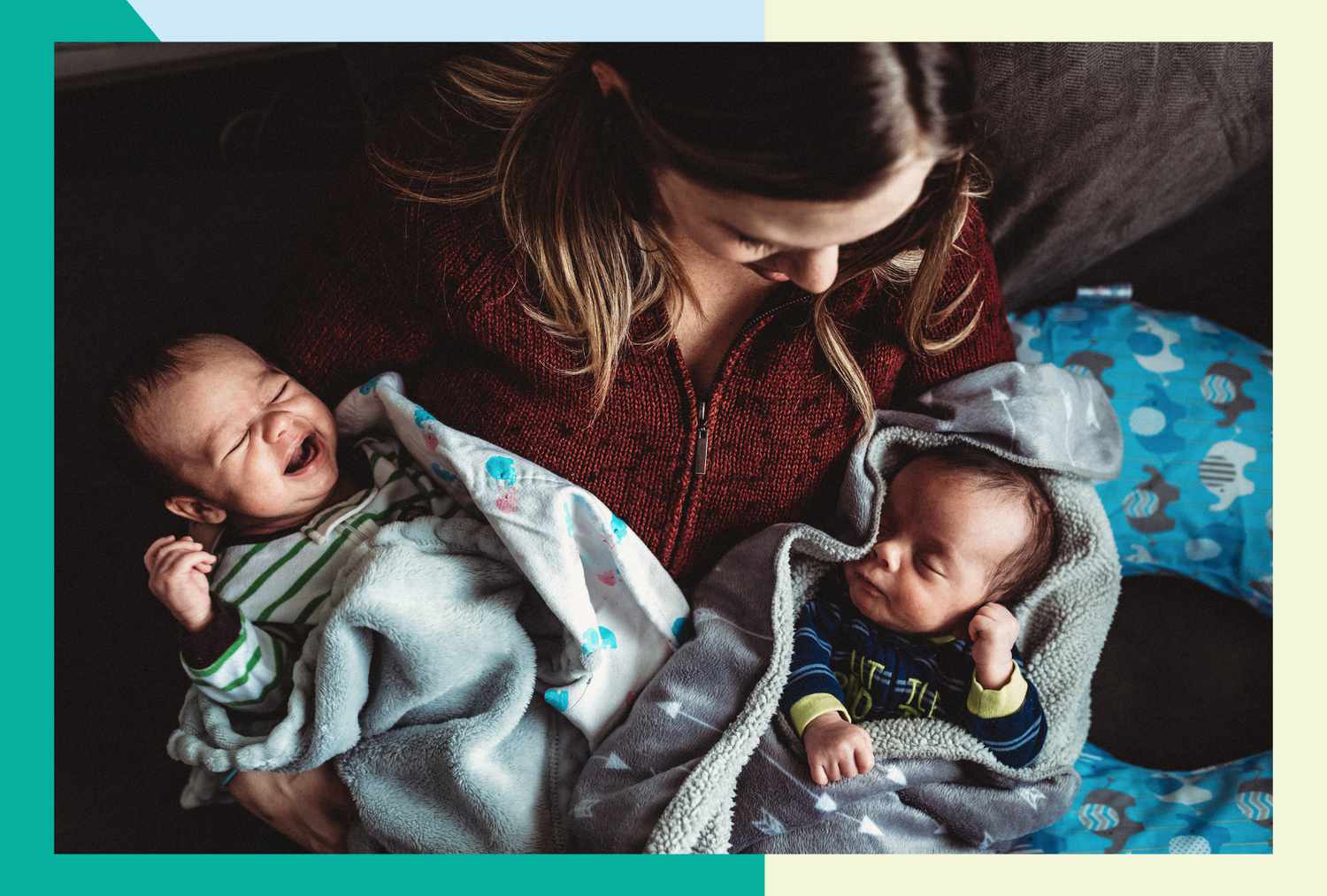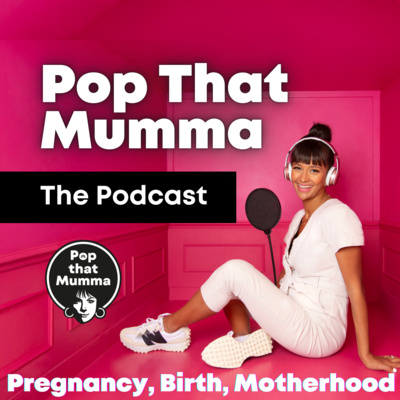
When licensed marriage and family therapist Audrey Schoen’s twins were born, her son had a deep tongue tie and, for a short time, her daughter struggled with low blood sugar. She was determined to breastfeed, so she had to do triple feeds every 3-4 hours around the clock. “That involved breastfeeding, pumping, and then bottle feeding. It left little time for anything other than sleeping and eating in between. All while recovering from a C-section and an allergic reaction to a medication that caused acute kidney failure for the first 5 days after birth,” she says.
“My husband worked in law enforcement, and once he returned to work, I handled nearly all the needs for the babies and home with some help from our moms,” she says. She remembers moments where she would be tending to one baby while the other was screaming, unable to soothe them.
“This was a special kind of hell. What feels most profound is that the mental load required to simply keep two babies alive at the same time, while tending to my most basic needs, was overwhelming alone. Then, to also attempt to keep up with things like meals, chores, and laundry felt daunting, and often things just didn’t happen,” she shares.
The Northern California-based mom of two recalls several moments sitting on the couch crying, wondering if she had ruined her life forever. Sometimes, that sadness turned into a burning fire inside her, and thoughts of throwing things at the TV just to watch it shatter would cross her mind. “The rage was something I had never experienced before. It feels like you are on fire inside, and mine came with intrusive thoughts. While I never felt unsafe, I knew it was a signal that something needed to change,” she says.
How Postpartum Depression Is Linked to the Mental Load
A 2024 study found that postpartum depression (PPD), a serious mental health condition that occurs within a few days of giving birth, has doubled, increasing from 9.4% to 19% over the last decade. Despite the rising rate of PPD potentially reflecting improved screening and diagnosis practices, the study stresses the importance of developing and implementing interventions to prevent the condition.
The mental load connects to PPD in many ways, starting with overwhelm and burnout. New mothers, who are often primary caregivers, carry the bulk of the mental load, making sure everyone’s needs are met. This can lead to chronic stress and emotional exhaustion, increasing the risk of PPD. Sometimes there’s also a lack of support—if partners or family members don’t share the mental load, new moms can feel isolated, unappreciated, or resentful, worsening feelings of depression.
“As a therapist, I had an understanding of what was happening, but the understanding alone didn’t make it better. It just made it a little less scary,” Schoen admits. She says she sought out a therapist who was also a twin mom, which was somewhat helpful.
The biggest thing for Schoen was releasing her expectations of herself and allowing others to be disappointed about that without taking it personally. She also stopped feeling guilty about things she was ‘supposed’ to be doing and wasn’t. “With that, I started to speak up. I gave voice to the things that were not ok. I asked for help even when I thought I could probably do it myself. I pushed back when others minimized my pain with phrases like ‘try to enjoy these moments, you’ll miss them someday,’” she says.
“I made promises to myself, like going outside every day and showering before noon. And I kept those promises no matter what, most days,” Schoen says. Once she and her babies were stable and in a good feeding routine, she had their grandmas come for a couple hours three days a week on a predictable schedule, so she had breaks to look forward to. She would use those breaks to leave the house and do things specifically for herself. Eventually, they hired a house cleaning service.
Normalize Sharing the Load—Even if It’s Outsourced
Similarly, Stephanie Fornaro says she hired support because her husband recognized that she needed it. “My husband tried to convince me during my pregnancy to hire help in anticipation of our son because he traveled a lot for work, but I refused. Refusing that support is what I believe added to my PPD. The mental load of doing it all was overwhelming,” she says.
The Texas-based mother of two says that there were so many emotions that she felt at that early stage. “I was overwhelmed. I was lonely. I was sad. I was resentful. I was angry.” But even despite those feelings, she couldn’t get out of her own way.
Fornaro had taken apause during her pregnancy to focus solely on motherhood, but she found that not having a job to go to and eating, sleeping, and breathing the home and baby were incomprehensible for her. Motherhood by itself was heavy.
“I had expectations that my husband would be in the trenches with our son with me, but his work didn’t allow for that. He proposed that we hire support, a nanny in particular, and I refused until our pediatrician encouraged it,” she recalls. “It took hearing it from a medical doctor to make me open to the idea. Hearing it from my husband went in one ear and out the other.”
She felt like hiring a nanny meant she was outsourcing her parenting, but what she learned instead was that it actually gave her space to be a better, more engaged mom and wife because her needs were able to be met.
“My need for a shower alone, or time with other adults, a lunch with a friend, just time to have a sliver of an identity outside of being a mom and wife was really important,” Fornaro admits.
The mental load can quickly lead to overwhelm when it becomes too heavy to bear. Juggling household duties, relationships, and personal needs requires ongoing mental effort, often leaving little room for rest or relaxation, which is why it was important for Fornaro to get that time to herself. Without it, this ongoing mental strain could easily have led to feelings of exhaustion, stress, and burnout—all signifiers of PPD.
What to Do When the Mental Load Keeps You Stuck
Marissa Zwetow, LMF, and founder of Postpartum Happiness, acknowledges that it is the overwhelm and mental load of motherhood, along with feeling isolated and inadequate (e.g., “Why can’t I manage this on my own?”) that is causing postpartum depression.
“We rarely hear it being talked about like that,” she says. “This updated and broadened way of understanding postpartum depression could lead to more mothers feeling seen and validated, and also help us to prevent postpartum depression.”
Zwetow says her advice depends on what makes up a mother’s mental load. “If it’s worrying a lot, they can explore and identify if their worries are irrational or unnecessary. Just discerning what worries are irrational and unproductive can be a great start in reducing them. Can they lean on their partner or family for some help to reduce the mental load of that never-ending to-do list?” she questions.
“What are their beliefs around being a ‘good’ mom that can add to that mental load, like having to always make nutritious meals or having to spend a certain amount of time with their children, and how are those beliefs creating roadblocks to finding time for themselves? Are they doing most of the work because they don’t trust anyone else to handle it?” she asks.
She encourages moms to see the cost of doing everything themselves and experiment with letting dad or someone else handle childcare or other tasks. “I remember a time when I was away, and my husband left the house with the baby to visit with his parents. He walked out of the house and forgot the diaper bag! And he had to handle it, and he did. He went to the grocery store and bought the diapers and the wipes, and it was fine. No one died!” she recalls.
“I remember another time my husband was alone with our picky-eater toddler, and instead of reminding him of her food preferences, I just let go and trusted him to manage it. I was pleasantly surprised when he said she tried peanut butter, which would have never happened had I tried to remind him of her food preferences.”
For her, the mental load of motherhood is about trying to control instead of having faith in a partner to handle it, even if they mess up or do it differently, which is often the case. Mothers should try to relax and take a break. “I invite moms to just experiment with trusting their partners and seeing if it’s really worth it to step back in and do everything,” Zwetow advises.





